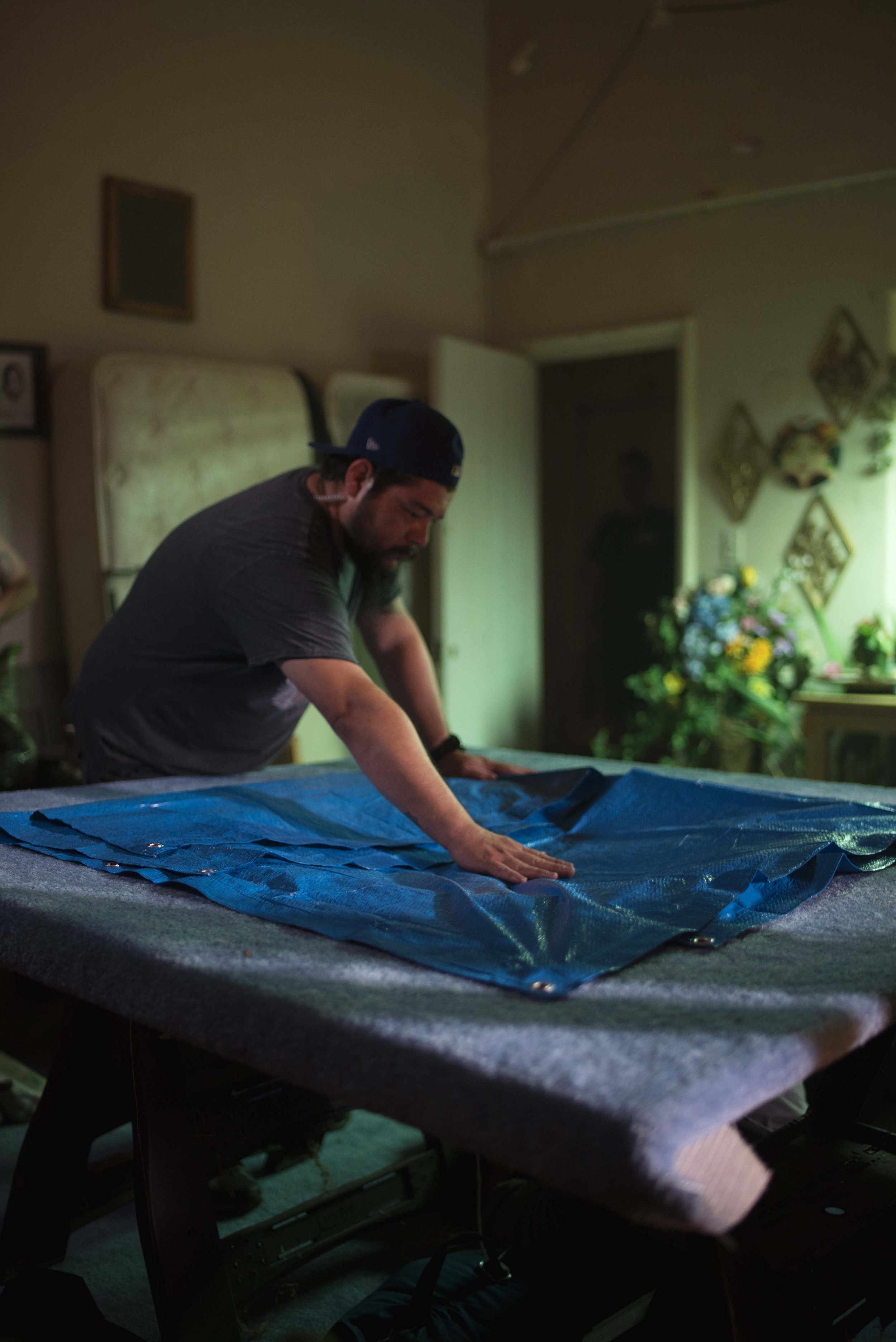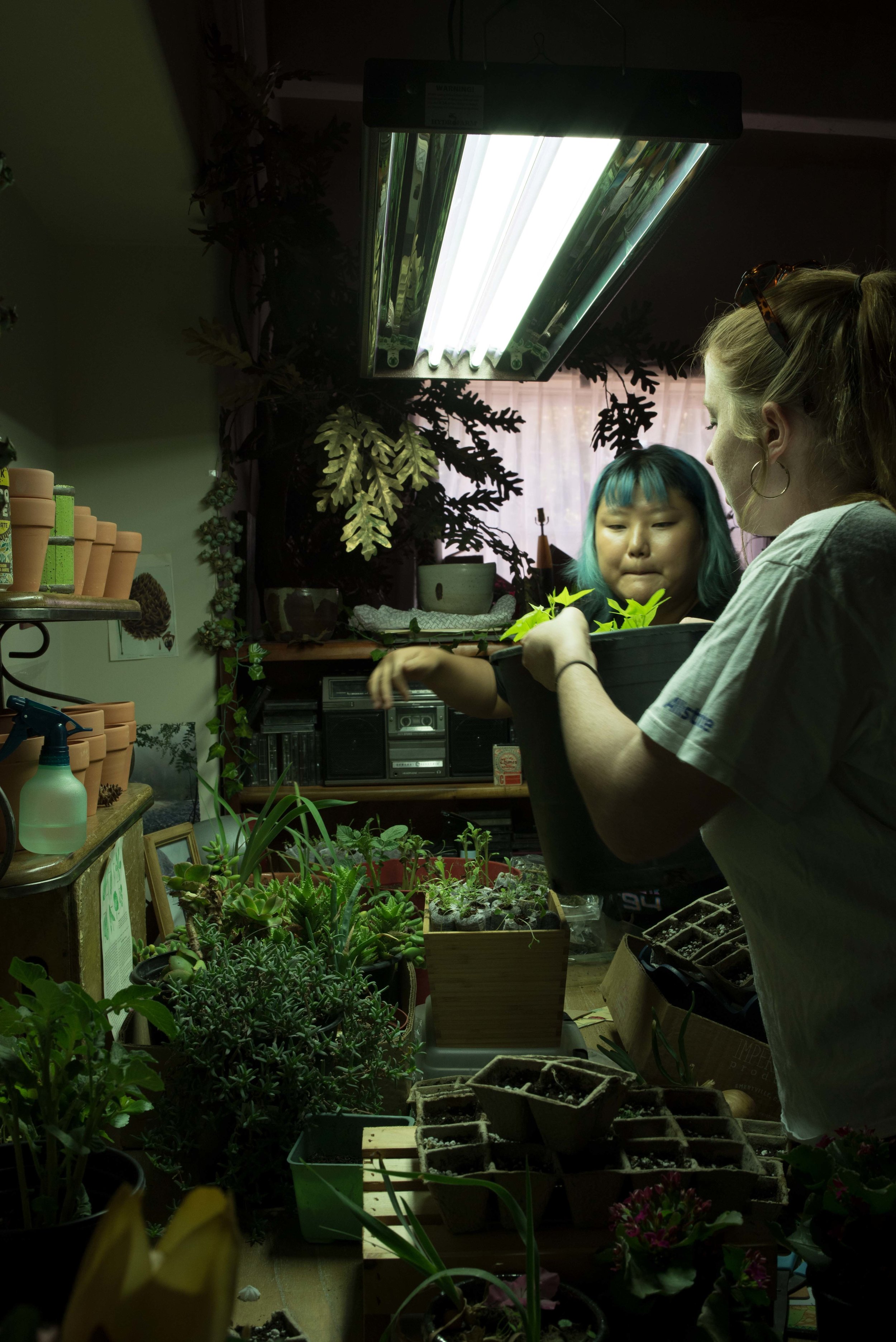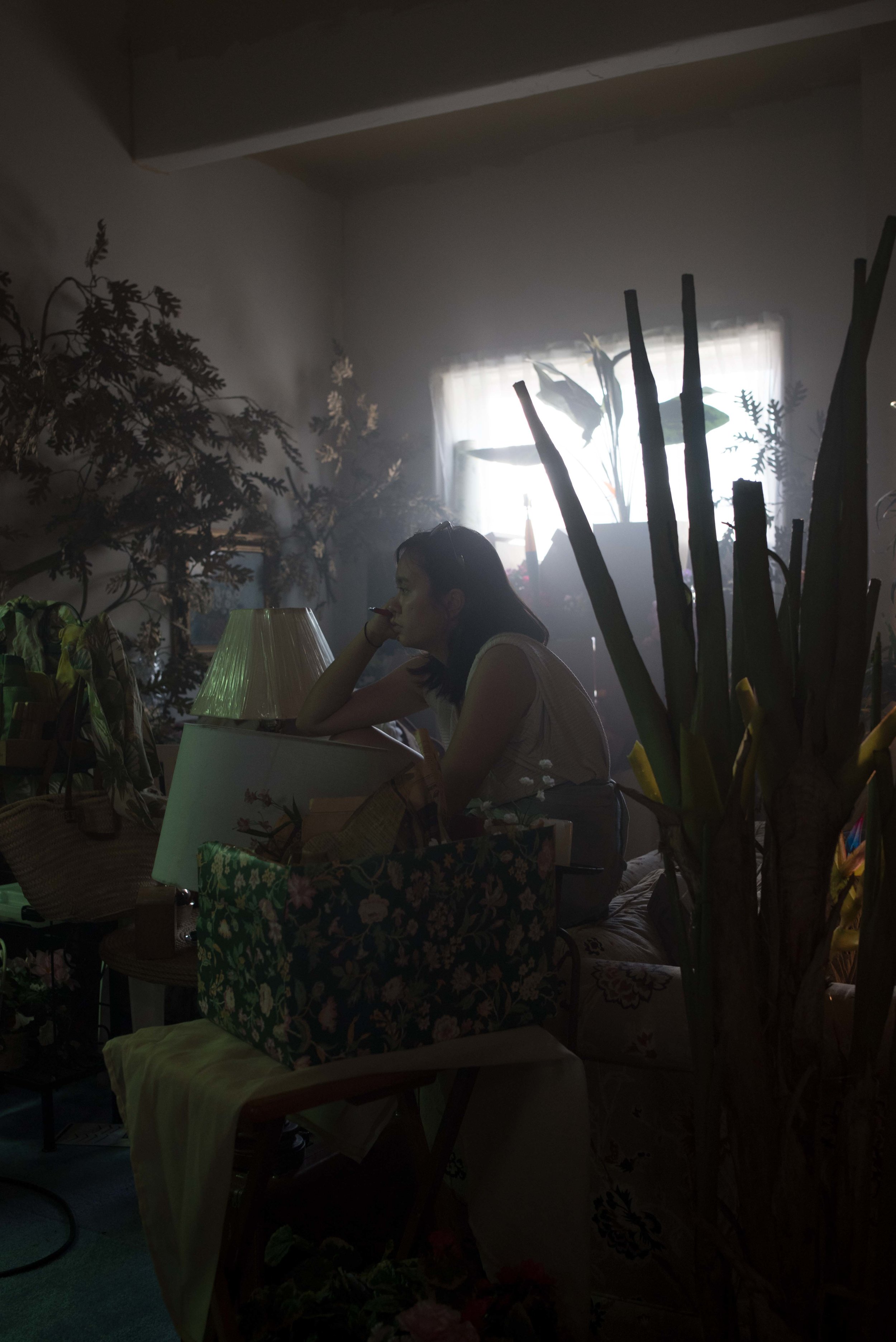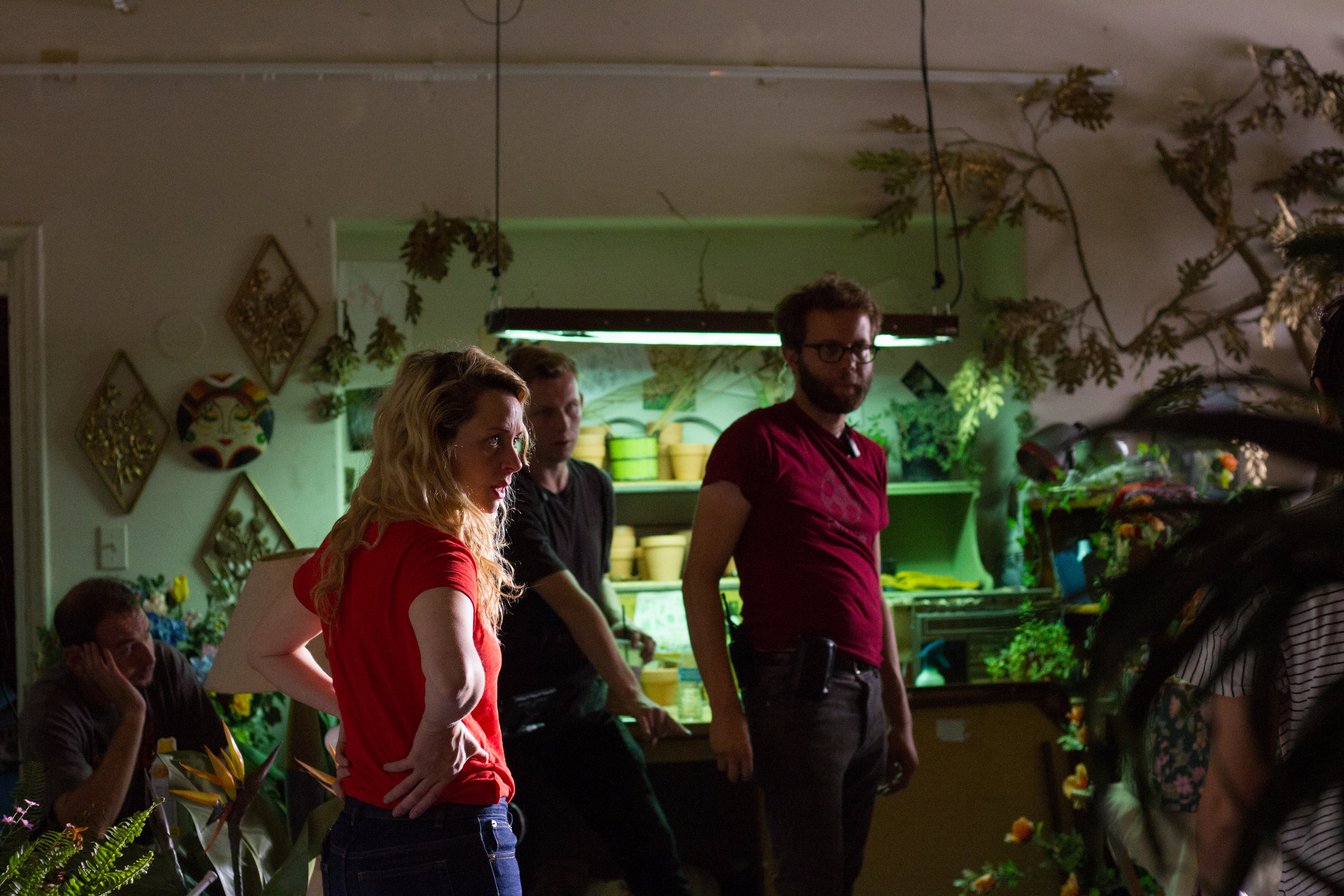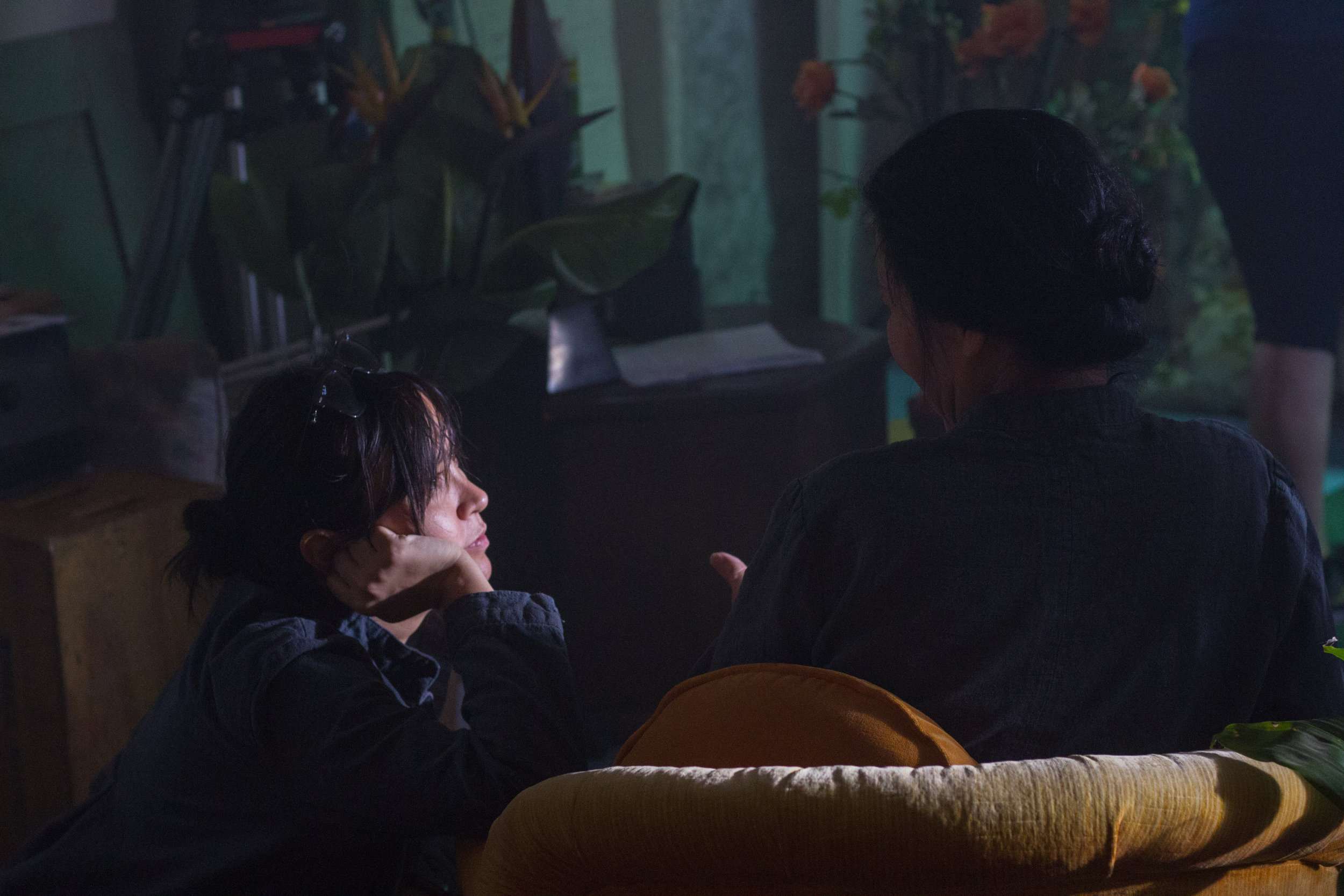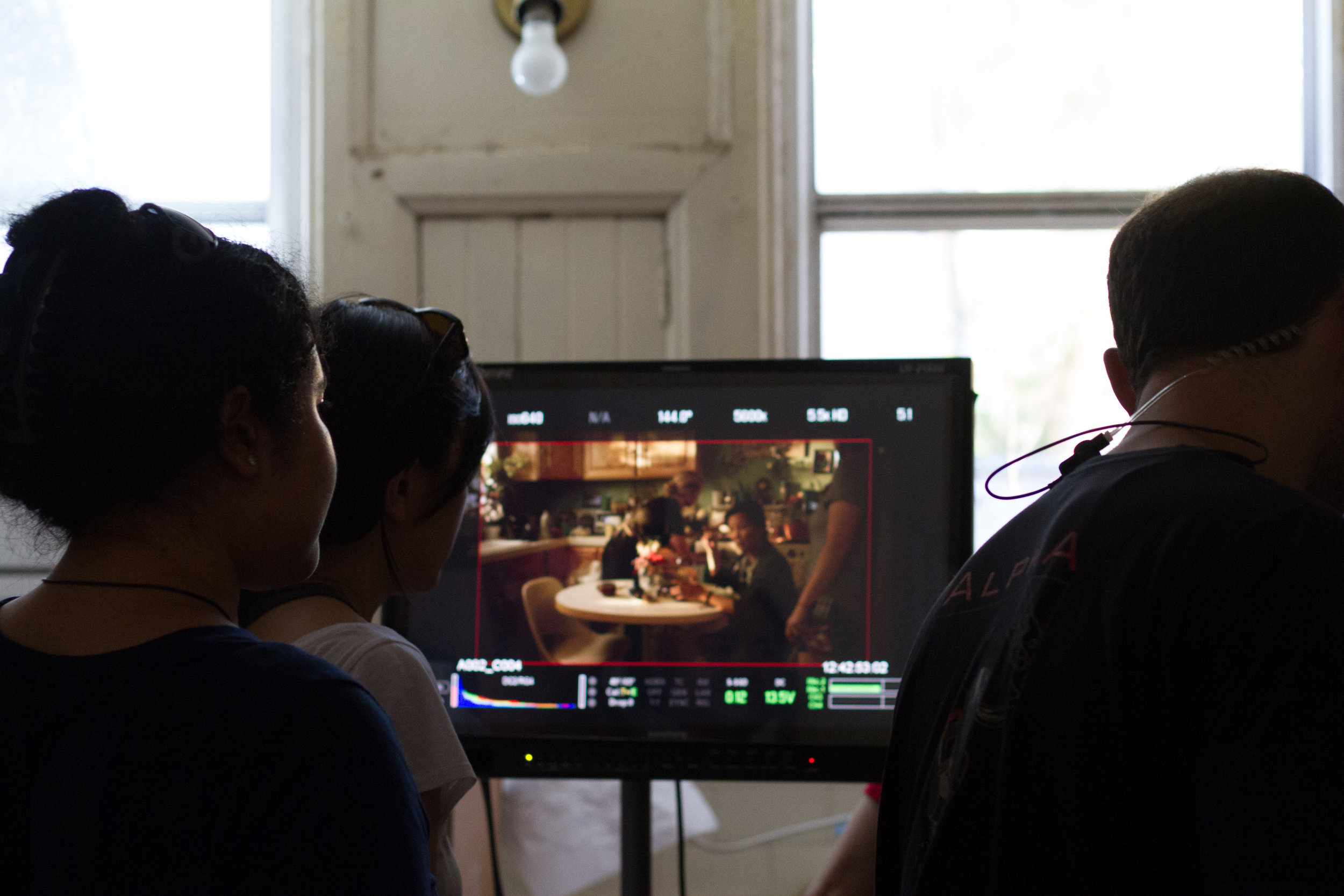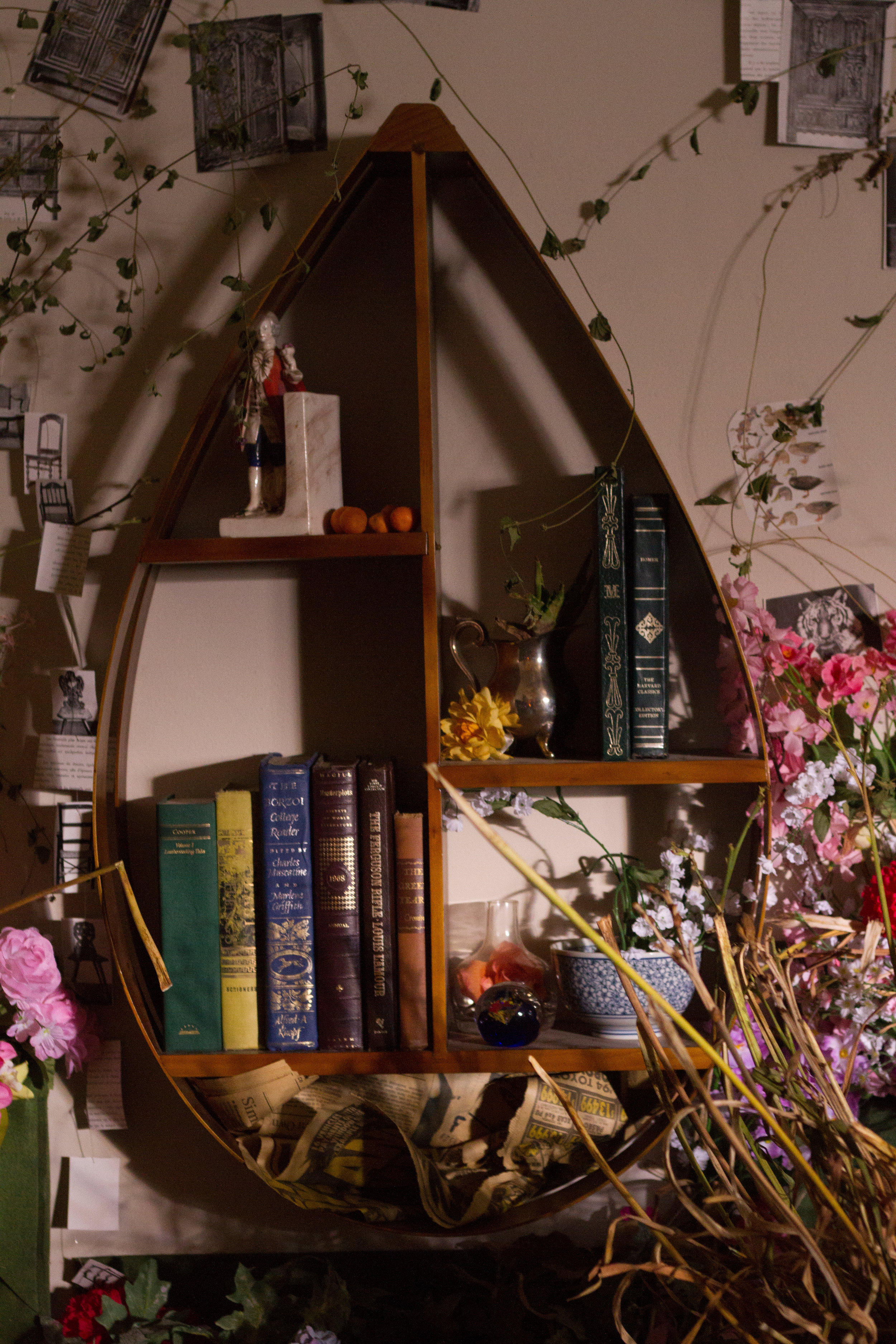You mentioned that it was only in the last few years that you found out your paternal grandmother was actually born and raised in Vietnam before settling in Hong Kong. How has learning more about your family’s history influenced your understanding of your own identity?
One thing that’s odd about being biracial is the extent to which your family allows you to access both cultures. Culture isn’t something your parents necessarily have in common, so the conversation often goes elsewhere and becomes focused on other things. Sometimes superficial differences will be brought up, but, at least for me growing up, going deep into my Asian heritage was far from immersive.
My father had mentioned little anecdotes about Vietnam when I was growing up, but since I grew up in Michigan, with very little access to Asian culture or history, I never had a strong understanding of what it meant. My dad and his family spoke Cantonese and lived in Hong Kong, which primarily identifies as Chinese, so that’s what I understood. While I grew up in mid-Michigan, there was hardly any Chinese food, let alone Vietnamese food, but I do remember my dad’s excitement when a pho restaurant opened in Lansing. I thought his love of pho was like his interest in Japanese food -- another Asian cuisine he appreciated. It was only later that I learned his aunties (he had many) would make pho and spring rolls on the weekend when he was growing up.
As I got older, I became more interested in Asian history in part from watching films in college. When I saw City of Sadness (dir: Hou Hsiao-Hsien) in college, everything in the film felt so familiar and comforting to me in a new way. I recognized the characters and their interactions. I became invested in Asian cinema and wrote my Master’s thesis on Johnnie To, a Hong Kong film director and producer. Film became my access point into learning more about Asian and Asian American culture and I started asking my dad more questions.
From him, I learned that my grandmother grew in North Vietnam in Haiphong and her father owned and operated a grocery store. My great grandmother was the first wife and he was quite preoccupied with having sons. After WWII, he took on a second wife. My grandmother was the second oldest of fourteen in the first family, a family of ten girls and four boys. His second wife had five children, but to my knowledge we’ve never really been in touch with them and I don’t know if he had any more success producing male heirs. My father believes one of the five children was a boy.
During the Second World War, my grandparents escaped the Japanese occupation and made their way to Chungking where my grandfather was born. After the war, they eventually made their way to Hong Kong, to avoid the Maoist revolution. Over time, my grandmother helped most her siblings escape Vietnam and move to Hong Kong. My father grew up in an apartment crowded with relatives and for a time, slept in a triple bunk bed.
The more I learned about my dad’s family, the more I felt comfortable identifying as Asian, Asian American, Chinese-American, Chinese-Vietnamese American and Vietnamese-American. I had friends growing up who told me, “I don’t think of you as Asian.” I would always take things like that as a compliment. Now, better understanding my family’s history and culture, it’s sad, yet telling, that it took me a long time to feel comfortable embracing being Asian-American. Growing up in Michigan, there wasn’t a good system in place to learn about AAPI history or AAPI activism and that can make it impossible to build any sense of community. I’ve gone out of my way to try to educate myself and better understand what we can do as a community to uplift marginalized Asian American communities that often get overlooked. It’s a long process and it’s something I wish that my parents had better communicated to me at a younger age.
You originally were a Mathematical-Economics major before your mom suggested you take a Film Studies class, which ultimately sparked your filmmaking journey. Can you talk about the women in your life?
My mother is and always has been an incredibly perceptive person. After I decided to go to Wesleyan, she began researching the school and found out that they have a renowned film program. Like a lot of people in my generation, I spent so much of my childhood watching films and I would often pick one film and watch it over and over again for months at a time. Even though it should have been obvious growing up, it wasn’t until I got to Wesleyan and took my mother’s advice to take a film class that I recognized my passion for film and ultimately filmmaking.
Both my grandmothers were fiercely independent women. I didn’t know either of them very well, but from my brief interactions with them, they couldn’t be more different. My maternal grandmother, Adeline, spoke very softly and always asked gently if she could make me a peanut butter and jelly sandwich. My paternal grandmother, Cecile, would stand yelling at my father in Cantonese that I was too skinny while piling food onto my plate.
My maternal grandfather Louis died before my mother was born and Adeline had no choice but to get a job as a high school secretary to take care of her kids. I never got the impression that living the life as a working mom was what she wanted. She had the option to go to college before she married, but she declined instead choosing to focus on getting married. She looked forward to being a homemaker and having a family. Unfortunate circumstances changed that.
Cecile on the other hand was always involved in the family business and inherently entrepreneurial in spirit. When the family needed money, she took sewing classes and opened a small store that sold children’s clothing she made herself. She learned English as soon as they got to Hong Kong and she was fluent in Cantonese, French, English and Vietnamese. I’ve always wanted to embody her entrepreneurial spirit, especially because people in my dad’s family always speak so fondly of my grandmother and what she did to help her family.
In a recent interview with Access Ventures and VSCO, you said, “People always seemed surprised when I told them I wanted to be a director and I started to wonder if those presumptions were based more on the stereotypes my appearance as an Asian American woman conjures or because of my somewhat reserved personality.” What is it like pursuing a field that isn’t filled with Asian American faces or voices, and especially Asian American female directors?
Although things have started to improve for marginalized communities in the film/entertainment community, there’s still a lot of room for change. As a TV writer, a common adage is that white men cannot find TV writing jobs because people only want to hire “diverse” candidates. That description of the state of TV writing really makes me cringe. It greatly oversimplifies the situation and improperly frames marginalized communities as the scapegoat. It’s still difficult for marginalized communities to have their own TV shows, land jobs as upper level writers on a staff, or get into development. Moreover, entertainment is an extremely competitive field -- so many people want to do it. It’s wrong to assign blame to a group of people for not getting hired when there are multiple factors at play.
I started directing music videos because even if the budget is low, the label and artist provided at least some financial base to experiment with narrative storytelling. I’ve always wanted to make short films, and music videos provided an avenue where I didn’t have to make them exclusively out of pocket.
Independent filmmaking is a career all about taking calculated risks. I’m often asking myself -- When can I go into debt? How much debt can I take? Do I think I can reasonably pay off this no interest credit card in the given timeline? Will this project be worth it? For In Full Bloom, I never would have been able to make the film without the support of the VSCO Voices Creator Grant. We need more organizations like VSCO and Access Ventures that provide creative arts funding that our government sadly does not.
IN FULL BLOOM is a film about an older Vietnamese-American woman named Cecile (played by the inimitable Kieu Chinh), who is struggling with the loss of her husband and has become an agoraphobic hoarder. Everything gets upended when worms open a black hole in her house. Can you tell us a little bit about the inspiration behind the film, as well as how you how you got into surrealist filmmaking?
Trailer for IN FULL BLOOM
My paternal grandfather suffered from severe dementia and after my grandmother died, the next day he woke up in the middle of the night looking for her because he kept forgetting she was gone. After she died, he lived for almost an entire decade, barely remembering his children and definitely not his grandchildren. In some ways, in the film, the idea of losing all your belongings is a metaphor for losing your memory. The thoughts and moments that defined your life, that kept the person you loved the most alive. When all those are gone, is there still a life?
I’ve never thought of myself as a surrealist filmmaker, but I do love the idea of playing with the boundaries of reality within film. What’s great about film, and art in general, is that it’s not real life and that opens up so many storytelling possibilities. I love films that rely on visual storytelling and use the juxtaposition of images to convey an idea or emotion that is sometimes too difficult to put into words.
I was so lucky to have Kieu Chinh sign on to do the film. She brought so much range and depth to the character and she’s the consummate professional. I loved working with her and I’d love to work with her on future projects.
Photos courtesy of Maegan Houang. Photographer credits: Michelle Tsaikaros & Taylor Johnston
Website for IN FULL BLOOM: https://ifbfilm.com/
Director: Maegan Houang
Screenplay: Maegan Houang
Producer: John J. Lozada & Vanessa Elliot
Director of Photography: Christopher Ripley
Art Direction: Emmy Eves
Costume Design: Anne Valliant
Editor: Gus Spelman
Sound Design: Grant Meuers
Music: Robert Ouyang Rusli
IN FULL BLOOM is currently available on Short of the Week from Wednesday, June 26 - Wednesday, July 3, 2019. You can also watch it on Vimeo.
To learn more about Maegan:
Website: http://maeganhouang.com
Twitter: @houangm
Instagram: @houangm


